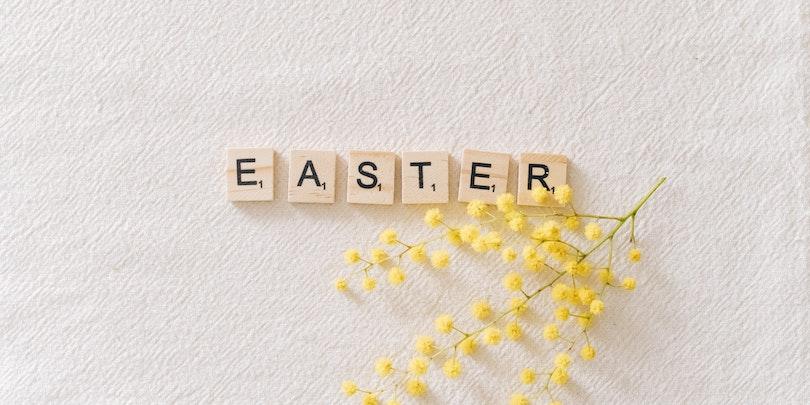
The event of 2023 Eater is knocking at the door. This year it has fallen on April 09, immediately after Good Friday which will happen on April 07. As a festival of reverence and devotion to the holy Christ Easter is a day of immense significance among Christians and quite fascinatingly collated with multitudes of religious myths, facts, and histories. While on one side the day of Easter Sunday is chosen to commemorate the ritual of resurrection, on the other side, the day epitomizes the visage of Spring which nurtures light, hope, and prosperity. So, enkindling bandwidths of facts, Easter is a day beyond pious traditions rather than a day of natural and religious concordance. Therefore, in this article, we have given a quick run-through encompassing all relevant facts about Easter. So, spare a few minutes and enlight yourself with the amazing lesser know facts about Easter.
Easter Date 2023: Know & Riddle Out Controversies Related To Easter
In the Christian religion, there is a bundle of moveable feasts. Easter is among them which is commemorated two days after Good Friday. This is because Good Friday is presumed as the day of Jesus’s Crucification while Easter is the day of Resurrection which falls exactly on the third day from the day of Crucifixion. In terms of mythological consequences, the practice of Resurrection holds and hedges a different story.
In terms of pinpointing the date for the Easter celebration, lots of ambiguities bubble up. This is due to marking the day as per various religious calendars such as Julian or Gregorian, Pascha or Peasch or Hebrew calendar, etc. Each calendar had one thing common in them to finalize the Easter date and that was the day after 1st Full Moon of Spring or Vernal Equinox. That means earlier Easter took place after the 14th day or Spring Equinox (Summer Solstice in N. Hemisphere i.e. March 21) according to ancient Nisan Calender although ‘day’ was not fixed. However, all related riddles were finally resolved by the First Council of Naecea in 325 AD under the discretion of Emperor Constantine and from then the date was finalised as the Immediate Sunday after the 1st Full Moon of Spring or Vernal Equinox which falls between March 22 to April 25. This is how the ambiguity regarding the Easter date has been resolved.
Easter History: Unearth Origin, Root, & Related Facts
Like the complications on the date, the history related to Easter origin is equally baffling. However, the embedded facts behind its occurrence indeed have a compelling story. In terms of the root and meaning of the festival, and vice-versa the entire historical origin of Easter is truly piquant and subsuming.
- The Original Meaning Of Easter & Etymological Root: The word ‘Easter’ is a cognate of Dutch Ooster or German Ostern which eventually shaped as Eastrun to Eastur to Eostre and finally Easter. The surprising fact is Eostre is a goddess of fertility and life in the ancient or early Christian religion which was as known as Pagan. Paganas embraced Easter or Eostre or Austher festival right after the Spring Equinox devoting ‘Spring’ as a season of prosperity and fertility. Eventually, the etymological trait had been substantiated by one of the most pious Christian monks or prophets Bede marking Eostre as the principal root of Easter.
- Facts Related To Easter Origin: There are two myths collated in relation to Easter origin. As a festival of Spring, Easter was commemorated by Pagans long back before the proliferation of Christianity. Later on, after successive dissipation of Jesus’ Holy Trinity by means of Christianity, the ritual of resurrection had been merged with it and established Easter a festival of both profound religious importance as a musing ceremony to Spring. This is because Spring has been epitomized to cast light and new beginnings after prolonged phases of dark winter.
- Easter Eggs Origin: Eggs in Easter reflect a metaphorical connection. The idea was first cherished among the ancient Pagans. They presumed that an egg fell from heaven to the holy Euphrates River which eventually ‘hatched’ and gave birth to the goddess of fertility, Asther, Asthur or Easter. In pertinence with this myth, Eggs still appear as an inclusive entity of Easter and are accepted as signs of a ‘dormant future’.
- Easter Bunnies Origin: Like eggs, bunnies are also remarked as holy. There are two reasons work together behind this belief. First of all, bunnies resemble the shape of an egg. Secondly, one of the goddesses of Pagans is featured with rabbits and hares who has symbolized shower flourishment and fertility.
**Know the detailed history of Easter Origin and facts from this article.
Easter Traditions: Unfold & Understand The Most Common & Less Know Traditions
No festival, be it a cultural or of religious consequence is found to be touted with certain traditions. In fact, the custom ‘convention or tradition’ would be simply void if no convention is being stipulated to it. So usually the ceremony of Easter does not shun away from this system. We’ve imparted Easter traditions into two parts; cultural traditions and food traditions. Let’s roll a glance at these sections.
Easter Cultural Traditions
Easter Cultural Traditions include those practices that embedded both social and religious norms. Starting from practising a specific religious activity to cordial socializing, everything makes a peaceful ally to turn the cultural part ethically complete. Popular Easter cultural traditions include
- Participating in Easter egg hunt games: As eggs appear as the most inclusive part of the Easter celebration, participating in egg hunt games is one of the most common Easter traditions. Both adults and kids do participate in the game, although the involvements of children are more due to being symbolized as ‘posterity’ and descendent of new hope.
- Easter Bunny Hunts: Like Easter eggs, bunnies are also considered to herald hope, prosperity, and fertility. So, going for an Easter bunny hunt or sending them to relatives’ houses is one of the most common positive omens practiced on the day.
- Sending White Lillies: In ancient religions including the Christian religion as well, Lillies symbolizes positivity and positivity. Hence, sending white lilies on the day is a common custom
**Read details about classic Easter traditions from this article.
Easter Food Traditions
Like cultural activities, the roster of Easter food traditions is equally engaging and plotted with compelling food ideas. From cooking classic platters of ham to baking cake or making Easter egg pastry baskets, abundant options are found to be celebrated jovially by people on the day. We’ve picked some of the most popular classic cooking ideas from all. These are as follows.
- Serving classic platters of ham
- Baking hot cross buns to symbolize crucifixion and honour Jesus
- Baking classic Easter bread
- Baking Easter bunny cakes
- Cooking dishes of lamb
- Both appetizing dishes and pastries shaping of Easter eggs, etc.
**Go through the article written on Easter food traditions
This was a comprehensive idea about Easter and all related rituals. Uncover each of these pleats by pleats and enjoy the enriched brainstorming sessions. It is paramount to be aware of all relevant facts to pave the way to a festival as the ‘festival’ and garnered amusing consensus among commoners. Therefore wish you a very happy Easter ahead! Enjoy and have fun.










